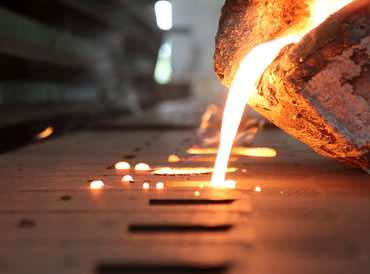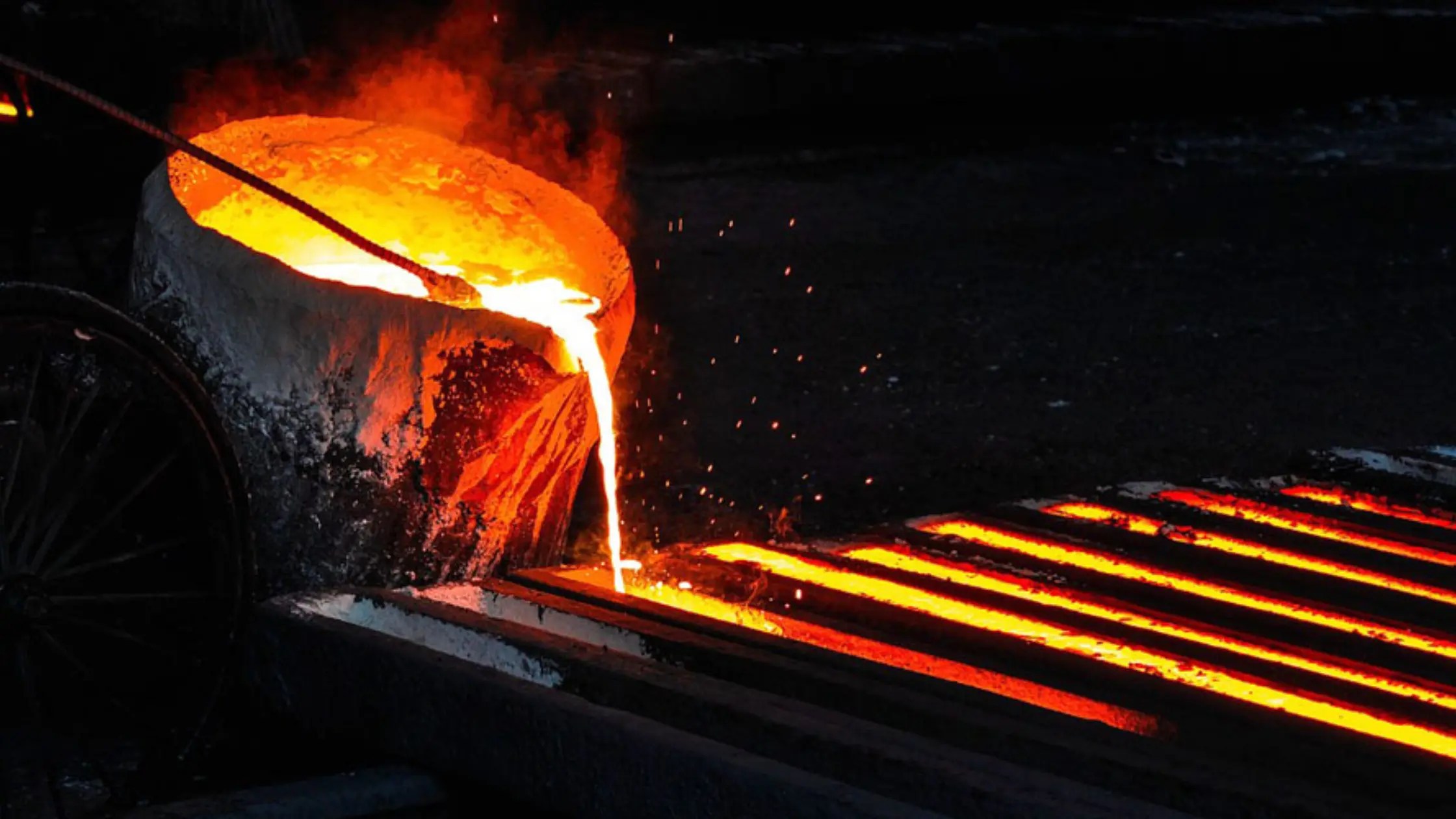How Metal Casting drives sustainable manufacturing solutions
Wiki Article
A Deep Study Steel Foundries: Trick Solutions and Their Effect On Manufacturing
Steel foundries are essential to modern-day manufacturing, providing necessary solutions that shape the production landscape. They specialize in different casting procedures, making certain accuracy and high quality in steel parts. The advancement of technology and lasting techniques has actually additionally affected their operations. As industries progressively rely on these foundries, comprehending their key services and the ramifications for production effectiveness ends up being important. What obstacles and advancements lie ahead for this crucial market?Comprehending Metal Casting Procedures
Steel spreading procedures change liquid steel right into strong things with various strategies, each tailored to certain applications and materials. Amongst the most typical methods are sand spreading, financial investment spreading, and die casting, each offering distinct benefits. Sand casting makes use of a mold and mildew made of sand, making it possible for the production of big components at a relatively reduced price. Investment casting, on the various other hand, includes developing a wax pattern that is covered in ceramic, yielding complex and very thorough shapes. Die casting utilizes high stress to compel molten steel right into a mold, which is ideal for mass manufacturing of little, specific parts. These processes allow for a variety of steels to be utilized, consisting of steel, bronze, and aluminum, suiting varied industrial requirements. The option of a proper spreading method depends upon elements such as called for tolerances, production quantity, and material homes, influencing the overall effectiveness and performance of completion items.The Importance of Precision Spreading
Accuracy spreading plays an essential role in creating elements that require high precision and intricate information. This technique, typically described as financial investment spreading, allows for complex geometries and tight tolerances, making it important in markets such as aerospace, automobile, and medical tools. By using wax patterns that are coated with a ceramic covering, accuracy spreading enables the development of get rid of smooth surface areas and minimal finishing needs.
Alloy Advancement and Product Selection
In the domain name of steel foundries, alloy growth and material option are important elements influencing the efficiency and longevity of actors parts. The choice of alloy straight affects mechanical buildings, such as toughness, ductility, and corrosion resistance, essential for meeting specific application needs. Factories often involve in substantial study and screening to optimize alloy structures, customizing them to the unique needs of numerous sectors, consisting of vehicle, aerospace, and building.Product choice likewise involves assessing variables like schedule, expense, and manufacturability, ensuring that the chosen alloy lines up with manufacturing abilities and budget restrictions. Advanced simulation tools and logical techniques are employed to anticipate the actions of various alloys under differing conditions, giving useful understandings for engineers. Inevitably, effective alloy advancement and product option make it possible for foundries to produce high-quality elements that boost operational performance and integrity in their designated applications.
Cutting-edge Molding Strategies
Transforming the production process, cutting-edge molding strategies play a pivotal role in enhancing the effectiveness and high quality of cast components in steel foundries. Strategies such as 3D printing and vacuum molding have become game changers, permitting intricate layouts and reduced preparations. These techniques allow shops to create mold and mildews with complicated geometries that traditional techniques often have a hard time to accomplish.In addition, the use of innovative products for molds, such as composite materials, improves toughness and lowers wear, resulting in longer production runs. Fast prototyping more permits for fast iterations, facilitating much faster development cycles and allowing manufacturers to react even more swiftly to market needs.
Automation in molding processes simplifies procedures, minimizing human error and raising throughput. By integrating these ingenious techniques, metal factories can enhance their production abilities, ultimately bring about better castings and boosted total efficiency in the competitive manufacturing landscape.
Quality Assurance in Metal Foundries
Quality assurance in steel foundries is crucial for making sure the integrity and performance of cast products. It incorporates various inspection strategies and standards, along with defect detection approaches to determine possible issues early in the manufacturing process. Robust quality assurance processes are important for maintaining consistency and meeting sector requirements.Assessment Techniques and Criteria
Assuring the integrity of steel spreadings requires extensive examination strategies and adherence to established standards. Metal factories execute different examination methods to assess the top quality of cast products, consisting of visual inspections, dimensional checks, and non-destructive screening (NDT) These strategies help to recognize possible flaws early in the manufacturing process. Standards such as ASTM and ISO supply guidelines for acceptable top quality degrees and screening procedures, assuring that shops preserve consistent top quality throughout their production lines. Conformity with these criteria not just boosts product integrity however likewise cultivates trust fund among customers. By prioritizing assessment methods, steel shops can mitigate risks connected with defects and guarantee that their spreadings fulfill client specs and sector demands.Problem Detection Approaches
Reliable issue detection methods are important to maintaining high requirements in steel factories. These approaches encompass a selection of strategies intended at identifying imperfections in castings prior to they are refined even more. Common approaches consist of visual assessment, which depends on the experienced eye of inspectors to spot surface area flaws, and non-destructive screening (NDT) methods such as ultrasonic screening and radiography, which expose inner issues without harming the material. Additionally, automated systems using artificial intelligence and expert system are progressively utilized to evaluate data and determine abnormalities. Each approach plays a crucial function in guaranteeing the stability of the end product, minimizing waste, and boosting overall production efficiency. By implementing robust defect detection processes, shops can maintain their reputation for top quality.High Quality Guarantee Processes
In steel factories, a complete high quality guarantee procedure is vital for creating high-performing and reputable castings. This procedure incorporates numerous phases, consisting of basic material examination, in-process surveillance, and last item evaluation. By applying standard procedures, foundries can systematically identify and correct issues prior to they escalate right into costly concerns. Advanced techniques, such as non-destructive screening and metallurgical analysis, are employed to examine the honesty of castings. Documents and traceability are vital parts, making certain that each step of manufacturing fulfills rigorous top quality requirements. Training workers in top quality control techniques additionally improves the effectiveness of these processes. Eventually, a durable quality control structure weblink not only improves operational effectiveness yet additionally strengthens client depend on and fulfillment in the factory's output.The Role of Modern Technology in Shop Procedures
Innovation reinvents foundry procedures by boosting accuracy, security, and performance. Automation plays an essential role, streamlining processes such as mold making and metal putting, thus minimizing labor prices and decreasing human error. Advanced computer-aided style (CAD) software application allows precise modeling of parts, assisting in quicker modifications and iterations during production.The integration of robotics in jobs like material handling and finishing procedures enhances productivity and warranties constant top quality. Real-time monitoring systems and information analytics provide useful understandings into operational performance, enabling timely interventions and upkeep, which inevitably prolongs equipment life expectancy

The fostering of 3D printing innovation additionally enables quick prototyping and tailored solutions, significantly lowering lead times. In addition, advanced products technology boosts the buildings of alloys, boosting casting performance. To sum up, technical advancements are essential in enhancing foundry operations, making it possible for producers to meet the increasing demands for high quality and efficiency in the competitive steel market.
Ecological Considerations in Metal Casting
Ecological considerations in metal spreading play a significant function in shaping sector methods. Reliable waste management, advanced discharge control technologies, and using lasting products are essential for reducing the environmental footprint go to this web-site of foundries. Resolving these variables is imperative for advertising an extra lasting future in metal manufacturing.
Waste Monitoring Practices
Efficient waste management methods are vital in the metal spreading industry to mitigate environmental effects. Metal Casting. Foundries generate different types of waste, including metal scrap, chemical, and sand deposits. Implementing reusing programs permits the repurposing of steel scrap, minimizing the requirement for virgin products and minimizing landfill contributions. Additionally, shops usually use sand improvement processes, which recover and reuse sand numerous times, consequently lowering waste generation. Appropriate disposal methods for dangerous materials, such as binding solvents and agents, are essential to avoid soil and water contamination. Staff member training on waste segregation and reduction methods can improve general effectiveness and sustainability. With these methods, metal foundries can significantly reduce their ecological impact while maintaining production efficiencyEmission Control Technologies
As the steel casting sector develops, the implementation of advanced discharge control innovations becomes increasingly important for reducing unsafe contaminants launched throughout manufacturing procedures. These innovations encompass numerous approaches, including electrostatic precipitators, scrubbers, and catalytic converters, which properly catch and counteract exhausts before they enter the ambience. By integrating such systems, shops can significantly lower particle issue, volatile organic substances, and other dangerous exhausts. In addition, compliance with stringent ecological guidelines not only alleviates ecological impact yet likewise enhances the industry's reputation and operational performance. The adoption of these innovations shows a commitment to sustainable practices, making certain that steel spreading operations can satisfy the growing demand while prioritizing ecological health and wellness.Lasting Products Use
Lasting products usage in steel spreading plays a crucial duty in decreasing the market's ecological impact. Shops are progressively taking on recycled steels, which greatly lower the need for virgin sources and lower power usage throughout the production procedure. Furthermore, making use of environmentally friendly binders and ingredients improves the sustainability of casting operations by lessening harmful discharges and waste. Advancements in material science likewise enable for the development of naturally degradable choices that do not jeopardize item top quality. Moreover, factories are carrying out life-cycle evaluations to assess the environmental impact of products throughout their lifespan, advertising more liable sourcing and use. On the whole, these techniques add to an extra ecologically conscious and lasting metal casting sector, aligning with international efforts to lower carbon impacts.Often Asked Concerns
What Are the Main Kind Of Metal Made Use Of in Foundries?
Foundries mostly utilize metals such as iron, copper, magnesium, and aluminum. These materials are chosen for their unique residential have a peek at this site properties, which affect the casting process and the performance attributes of the end products manufactured.How Do Shops Guarantee Employee Safety And Security Throughout Procedures?
Shops assure employee safety with strenuous training, appropriate equipment, ventilation systems, and adherence to safety policies. Regular inspections, individual safety gear, and emergency situation procedures additionally improve a risk-free workplace for workers taken part in steel production.What Is the Regular Lead Time for Casting Production?
The normal lead time for spreading production differs, normally varying from a couple of weeks to numerous months. Aspects influencing this timeline consist of complexity of the layout, product accessibility, and the foundry's manufacturing capacity and organizing.How Do Foundries Manage Waste and Recycling Processes?
Factories handle waste and recycling by implementing procedures such as steel reclamation, sand recycling, and appropriate disposal of hazardous products, thereby lessening ecological impact and advertising sustainability in their operations while adhering to regulatory requirements.What Industries The Majority Of Typically Make Use Of Steel Shop Services?
Metal factory services are mostly made use of in markets such as auto, machinery, building, and aerospace manufacturing. These markets rely on shops for generating actors metal elements crucial for various applications and product advancement.Steel shops are essential to modern-day production, using important services that form the manufacturing landscape. Steel casting processes transform liquid metal into solid items through various strategies, each customized to certain applications and products. As technology breakthroughs, the importance of precision casting proceeds to expand, driving technology and performance in metal foundry procedures. Changing the manufacturing procedure, cutting-edge molding methods play a critical function in improving the effectiveness and top quality of actors components in steel foundries. In metal factories, a complete top quality guarantee procedure is necessary for generating high-performing and reliable castings.
Report this wiki page